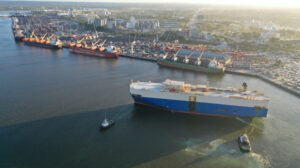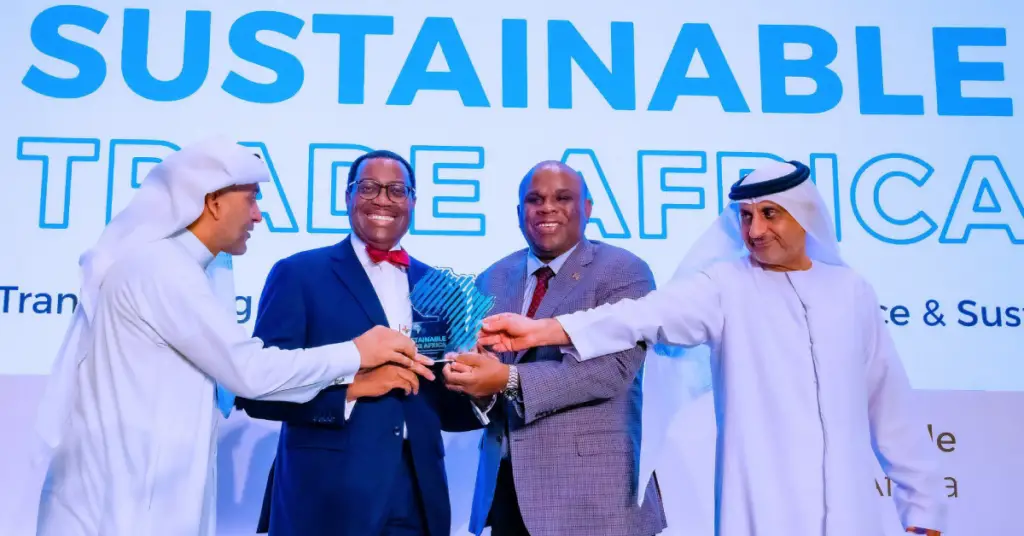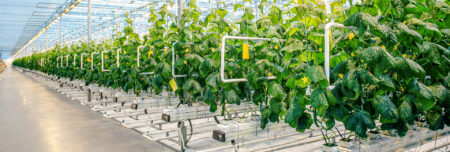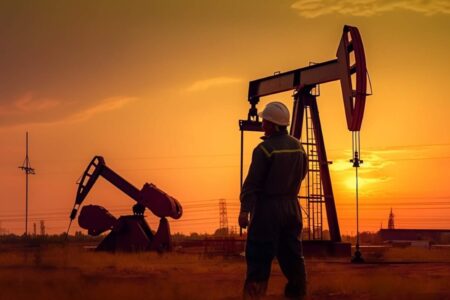- Africa stands to lose up to $25 billion annually due to the direct impact of the EU Carbon Border Tax Adjustment Mechanism.
- With Africa’s energy deficit and reliance mainly on fossil fuels, especially diesel, the implication is that Africa will be forced to export raw commodities again into Europe.
- New carbon tax could severely impede Africa’s progress by penalizing value-added exports in industries such as steel, cement, iron, aluminum, and fertilizers.
In a stark warning, African Development Bank (AfDB) Group President, Dr Akinwumi Adesina, has raised concerns about the potential ramifications of the new EU carbon border tax on Africa’s trade and industrialization efforts.
Dr Adesina says that this tax could severely impede Africa’s progress by penalizing value-added exports, specifically targeting crucial industries such as steel, cement, iron, aluminum, and fertilizers.
The imposition of carbon tax would have a profound impact on the continent’s ability to compete in the global market and hinder its strides towards economic diversification.
Carbon tax would exacerbate de-industrialization on Africa, warns AfDB
President Adesina underscored the conundrum faced by Africa, highlighting the continent’s energy deficit and heavy reliance on fossil fuels, particularly diesel. This, he argued, would force Africa to revert to exporting raw commodities to Europe, a shift that would exacerbate de-industrialization on the African continent.
The AfDB warning comes at a critical moment, as the continent grapples with the challenge of advancing its industrialization agenda while navigating the complexities of global environmental policies.
Addressing delegates at the Sustainable Trade Africa Conference held at the UAE Trade Centre in Dubai during COP28 meeting, President Adesina delivered a sobering message. He estimated that Africa stands to lose up to $25 billion annually due to the direct impact of the EU Carbon Border Tax Adjustment Mechanism.
The Carbon Border Adjustment Mechanism is modeled as a pivotal tool within the EU’s comprehensive Fit for 55 Agenda that is designed to combat carbon leakage. CBAM aims to create parity in carbon pricing between domestically produced goods and imports.
It seeks to prevent the potential undermining of the EU’s climate policies due to production relocation to regions with less stringent green standards or the influx of more carbon-intensive imports.
The mechanism is specifically tailored to target imports of cement, iron and steel, aluminum, fertilizers, electricity, and hydrogen. Importers within the EU dealing with these commodities are obligated to report the volume of their imports and the greenhouse gas (GHG) emissions associated with their production processes, thereby ensuring alignment with the EU’s climate goals.
Increasingly, as discussions around climate change and sustainability intensify, Africa finds itself at the intersection of economic development and environmental responsibility, navigating a thin line between progress and compliance on the global stage.
“Africa has been short-changed by climate change; now it will be short-changed in global trade,” the Bank President said, adding: “Because of weak integration into global value chains, Africa’s best trade opportunity lies in intra-regional exchanges, with the new Africa Continental Free Trade Area estimated to increase intra-Africa exports over 80 per cent by 2035.”
Read also: Africa must own carbon offsets value chain amid market failures
AfDB: Africa is often sidelined in the global energy transition
Dr Adesina has also underscored a concerning reality: Africa is often sidelined in the global energy transition. Data from the International Renewable Energy Agency reveals a stark disparity, with Africa receiving a mere 2 per cent—amounting to $60 billion—of the $3 trillion invested globally in renewable energy over the past two decades.
The AfDB head noted that this imbalance threatens Africa’s competitiveness in international trade, particularly with Europe. To address this, he advocates for the implementation of what he terms “Just Trade-for-Energy Transition (JTET)” policies—strategies that would allow Africa to pursue its renewable energy goals without compromising its trade potential.
As Africa charts its course in the energy transition, Adesina recognizes the need for pragmatic approaches. He suggests that harnessing natural gas as a transition fuel could play a pivotal role in reducing the variability of renewable energy and stabilizing the continent’s energy systems.
This strategic use of natural gas aligns with Africa’s ambitions for industrialization, creating a pathway that acknowledges the complexities of balancing sustainability with the practical demands of economic development.
I see the potential in Africa – Walid Mohammed, Head, UAE Trade Centre
Contrary to widespread perceptions, Walid Mohammed Hareb Alfalahi, the CEO of the UAE Trade Centre, sees Africa as the new frontier for investment. Challenging the notion that the continent is inherently difficult for business, Alfalahi’s perspective sheds light on the untapped potential and opportunities that lie within Africa’s economic landscape.
As Africa grapples with the dual challenge of energizing its growth while engaging in global trade, the call for equitable policies and a nuanced understanding of the continent’s needs becomes increasingly urgent on the world stage.
“What you hear about Africa is not the reality. I see the potential in Africa. I see the possibilities to do more,” said Alfalahi as he recounted his positive experience of investing in a number of projects on the continent.
He also pointed to a positive trend in Africa’s investment environment. Citing a report from Moody’s Analytics, Adesina highlighted that Africa boasts the lowest default rate on infrastructure investment compared to other global regions.
According to the report, Africa’s default rate stands impressively low at 5.5 per cent, outperforming Latin America (12.9 per cent), Asia (8.8 per cent), Eastern Europe (8.6 per cent), North America (7.6 per cent), and Western Europe (5.9 per cent). This revelation challenges prevailing misconceptions about the continent’s risk profile and underscores its potential as a stable and lucrative investment destination.
Moreover, Dr Adesina shed light on notable mega projects that have garnered substantial investor interest through the Africa Investment Forum, a platform created by the AfDB and seven other founding partners.
A resilient frontier for investments
Among these projects are Mozambique’s colossal $24 billion liquefied gas initiative, the ambitious $15.2 billion Abidjan to Lagos Highway corridor spanning five countries, and the transformative $3.6 billion railway line connecting Tanzania to Burundi and the Democratic Republic of Congo.
These ventures not only signify the continent’s commitment to infrastructural development but also showcase Africa’s appeal as an attractive investment hub with projects spanning critical sectors that can drive economic growth across multiple nations.
As Africa positions itself as a resilient frontier for investments, Dr Adesina’s insights into the continent’s low default rates and the success of key projects at the Africa Investment Forum paint a promising picture of Africa’s economic potential.
These revelations challenge outdated perceptions and emphasize the need for a nuanced understanding of Africa’s investment landscape, encouraging increased participation and collaboration on a global scale.
“I’m talking about a different Africa. There is no project that as partners, we cannot handle,” said Adesina.
The conference, moderated by the AfDB President’s Senior Adviser for Communication, Dr Victor Oladokun, was also addressed by the President of Afreximbank, Professor Benedict Oramah. He warned, “Preliminary results of a study recently commissioned by Afreximbank reveal that rapid decarbonisation by fossil fuel-exporting countries in Africa could cut merchandise exports by $150 billion.”











